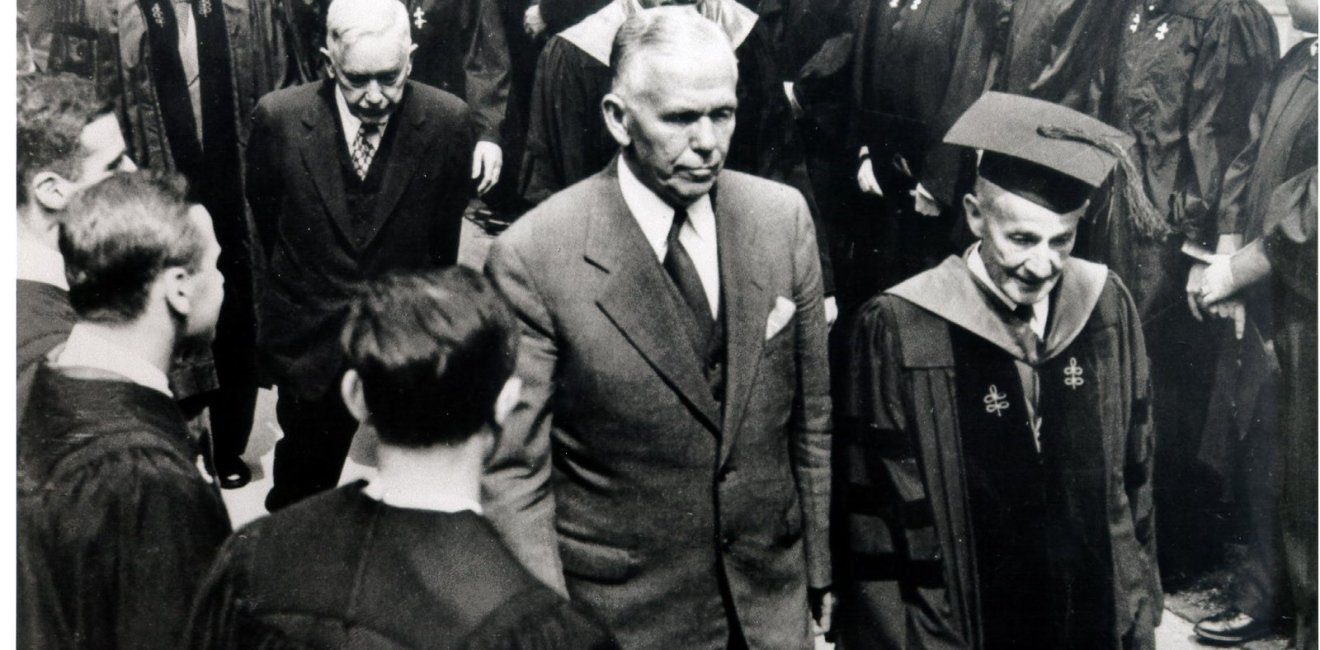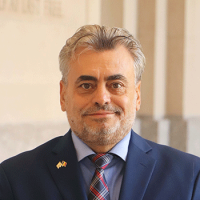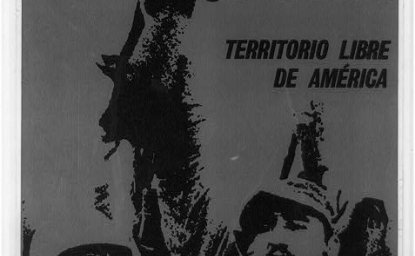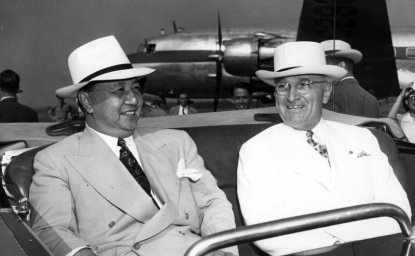Romania and the Marshall Plan
A new set of documents published on the Wilson Center Digital Archive offers perspectives on the Marshall Plan from Romania.

A blog of the History and Public Policy Program
A new set of documents published on the Wilson Center Digital Archive offers perspectives on the Marshall Plan from Romania.

The Marshall Plan, first announced in mid-1947, was a successful American program for the reconstruction of Europe following the end of the World War II that complemented the Truman Doctrine. Although historians and political scientists have published dozens of books and hundreds of articles about the Marshall Plan, few of these works have addressed the opening of the Marshall Plan to the USSR and Eastern Europe. Existing analyses of the Soviet reaction and, ultimately, rejection of the Marshall Plan have focused on the Tripartite Conference in Paris (June-July 1947) largely on the basis of Russian, Czech, and Polish archives.
A new set of documents published on the Wilson Center Digital Archive, in contrast, offers perspectives on the Marshall Plan from Romania, a country then quickly falling under the Soviet orbit.
After Romania broke off its alliance with Germany on August 23, 1944, the country fought alongside the Allied Powers until the end of WWII. Very quickly after the fighting stopped, Romania fell under the influence and domination of the Soviet Union. While Keith Hitchens, Ghita Ionescu, Denis Deletant, Vladimir Tismaneanu, and Michael Shafir, among others, have written about the Sovietization of Romania between 1945-1947, there have been scant references to – let alone analyses of – Romania’s rejection of the Marshall Plan, even in the Romanian language.
US Secretary of State George C. Marshall presented the “Marshall Plan,” formally known as the European Recovery Program (ERP), at Harvard University on June 5, 1947. Conditions for the ERP were supposed to be negotiated by Britain, France, and the Soviet Union in Paris in late June and early July. Stalin accepted the invitation to attend the Tripartite Conference in Paris, and even appointed Foreign Minister Molotov to lead a large delegation of about 100 experts to the meeting. American diplomats were therefore cautiously optimistic that the Soviet Union would support the ERP.
However, in the midst of negotiations with the French and the British, Molotov received a ciphered telegram from Vyshinsky. The Soviet attitude toward the negotiations and the Marshall Plan had changed dramatically, and now Moscow’s representatives in Paris were forcefully rejecting the Marshall Plan.
Meanwhile, officials in Romania had followed news of the Marshall Plan as best as they could. A Romanian translation of Secretary Marshall’s Harvard speech circulated just days after June 5, as did American press releases. Romanian diplomats also looked for clues about how Moscow would respond to the Marshall Plan in the lead up to the Tripartite Conference. Yet the fact that these reports were produced on the basis of Soviet media, rather than firsthand briefings with Soviet officials, suggests the Romanians were largely kept in the dark by Moscow at this stage.
After the final statement of Molotov at the Paris conference on July 2, when the Soviets rejected the proposals, however, Romania began to receive firsthand information directly from the USSR. Romania soon received invitations from the British and the French to participate in a planning meeting in Paris on July 12.
The Romanians, of course, followed the lead of the Soviet Union and opted not to participate in that meeting, despite additional invitations and explanations meant to assuage any concerns Bucharest might have about the Marshall Plan.
The telegrams and reports from the Romanian Foreign Ministry archives, now easily accessible on the Wilson Center Digital Archive, help readers to understand how Romania was involved in the Eastern bloc’s rejection of the Marshall Plan. These new materials also show how American, British, and French diplomats worked to help the Romanians, even as that country underwent Sovietization, and to attract Eastern European countries to join the European Recovery Program.
The author gratefully acknowledges the support of Christian F. Ostermann and Charles Kraus (Woodrow Wilson Center), Doru Liciu (Director of the Romanian Archives Unit/MFA) and Romanian Cultural Institute.


A global leader in making key archival records accessible and fostering informed analysis, discussion, and debate on foreign policy, past and present. Read more


The Cold War International History Project supports the full and prompt release of historical materials by governments on all sides of the Cold War. Read more


